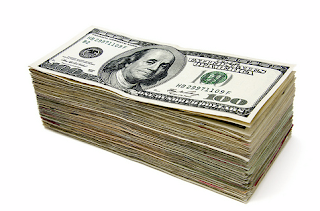 from threat level: One study after another purports to chronicle how much intellectual property piracy hurts the economy, and contributes to every societal ill from terrorism to child porn & slavery.
from threat level: One study after another purports to chronicle how much intellectual property piracy hurts the economy, and contributes to every societal ill from terrorism to child porn & slavery.A new study unveiled Tuesday sets out to examine intellectual property in a different light: How fair use — which doesn’t require permission from the copyright holder — actually benefits the economy.
The trade group, Computer & Communications Industry Association, in a follow-up to its 2007 report, asks: “What contribution is made to our economy by industries that depend on the limitations to copyright protection when engaged in commerce?”
For the year 2007, the fair-use economy accounted for $4.7 trillion in revenue (.pdf) and $2.2 trillion in value added, roughly one-sixth the total gross domestic product of the United States, according to the study. The fair-use economy also employed more than 17 million people with a $1.2 trillion payroll.
Fair-use-dependent industries include educational institutions, search engines, web hosting providers, software developers and device manufacturers, among others.
To be sure, the government urges caution when analyzing the economics of intellectual property. Still, we thought we’d throw this study into the mix because of its novel approach.
“The protection afforded by fair use and other limitations and exceptions has been a major contributing factor to these economic gains, and will continue to support growth as the U.S. economy becomes even more dependent on information industries,” the study said.
The association’s membership includes Microsoft, Google, eBay, AMD, Yahoo, Oracle and others. Under the Copyright Act, fair use is not copyright infringement. In the software context, for example, software development depends on making temporary copies of copyrighted software to facilitate the programming of interoperability.














No comments:
Post a Comment